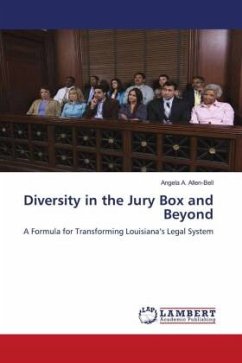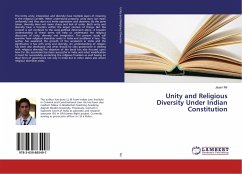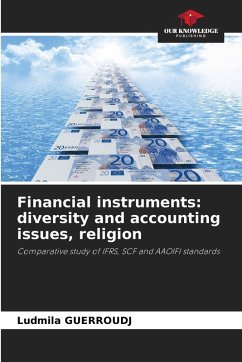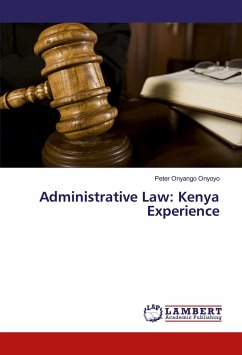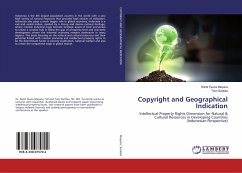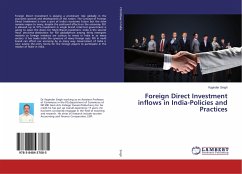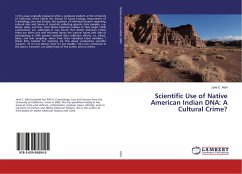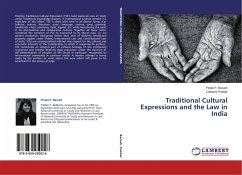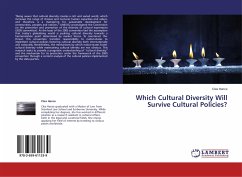
Which Cultural Diversity Will Survive Cultural Policies?
Versandkostenfrei!
Versandfertig in 6-10 Tagen
27,99 €
inkl. MwSt.

PAYBACK Punkte
14 °P sammeln!
"Being aware that cultural diversity creates a rich and varied world, which increases the range of choices and nurtures human capacities and values, and therefore is a mainspring for sustainable development for communities, peoples and nations," UNESCO promulgated the Convention on the protection and promotion of the diversity of cultural expressions (2005 convention). At the basis of the 2005 convention laid the assumption that today's globalizing world is pushing cultural diversity towards a harmonization point determined by market forces. To counteract this threat, this convention transfers...
"Being aware that cultural diversity creates a rich and varied world, which increases the range of choices and nurtures human capacities and values, and therefore is a mainspring for sustainable development for communities, peoples and nations," UNESCO promulgated the Convention on the protection and promotion of the diversity of cultural expressions (2005 convention). At the basis of the 2005 convention laid the assumption that today's globalizing world is pushing cultural diversity towards a harmonization point determined by market forces. To counteract this threat, this convention transfers responsibility to nation-states to implement cultural policies fostering cultural diversity both internationally and nationally. Nevertheless, the mechanisms by which nation-states foster cultural diversity while maintaining cultural identity are not obvious. This research seeks to provide a pragmatic understanding of "cultural diversity" and the mechanism for its protection under the framework of the 2005 convention through a content analysis of the cultural policies implemented by the state-parties.



